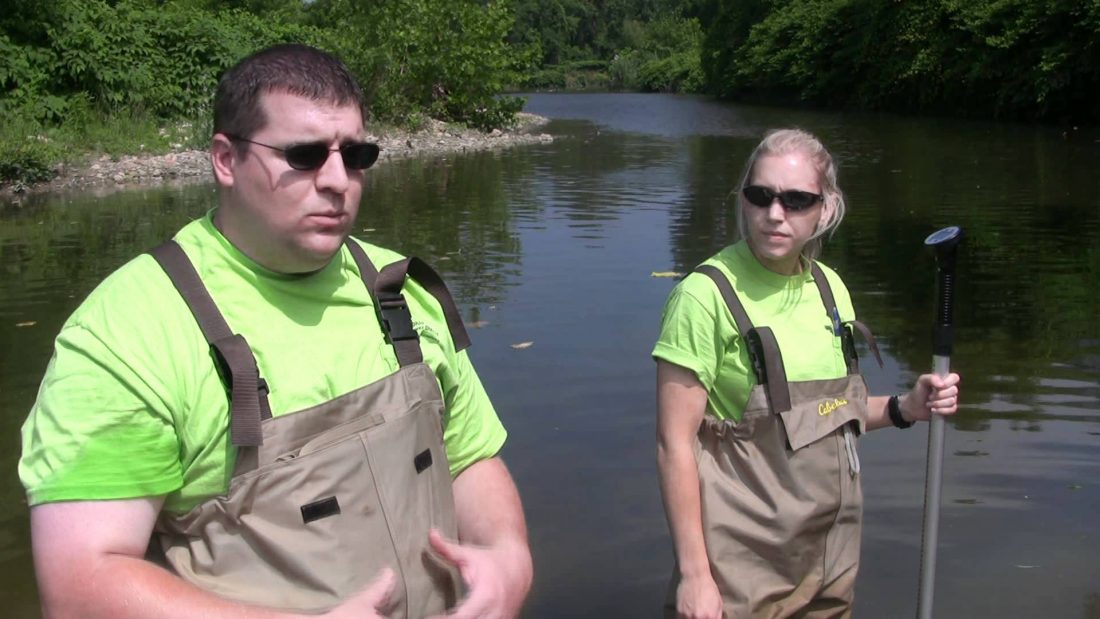Posted May 11th, 2015 in
Education,
K-12 Education Steve Park was one of 15 Great Lakes educators to set sail on Lake Erie last year for the annual Shipboard Science Workshop. Today, we hear a little of what he and his 7th grade students have been up to since.
 As a veteran teacher of enthusiastic middle school students, I adhere to Albert Einstein’s quote, “I never teach my pupils. I only attempt to provide the conditions in which they can learn.”
As a veteran teacher of enthusiastic middle school students, I adhere to Albert Einstein’s quote, “I never teach my pupils. I only attempt to provide the conditions in which they can learn.”
This school year started just like the first 20 years of my teaching career, with our study of environment science. However, it didn’t take long for my students to realize that the learning experiences this year were going to be extra special. Armed with a weeks worth of intense professional development while living on the R/V Lake Guardian motoring around Lake Erie, I had the resources, experiences, knowledge, and support to provide my students with the incredible conditions necessary for them to learn.
When teaching about the environment and stewardship, I have two goals. First, I want students to know specifically how they impact their local and global environments. Second, I want students to know how they can have a positive influence on their local and global environments. With that in mind, my students began their study on water ecology by conducting a video conference with individuals aboard the Lake Guardian collecting water samples in Lake St. Clair. Students learned about life on the Lake Guardian, research that is being done on the lake, and the responsibilities of the scientists.
Our focus then turned to our own outdoor classroom, where we have 36 acres of land, a large river, and a couple of smaller creeks. I intentionally set up conditions where my students had numerous opportunities to learn about the physical, chemical, and biological characteristics of the environment. In addition to traditional sampling techniques, my students conducted independent research projects. For instance, one group wanted to know if the diversity of macro invertebrates changed the farther you got from shore. To test their hypothesis, they created Hester-Dendy samplers and deployed them at various locations and distances from shore. Another group wanted to see if they could use all-natural materials to create a filter capable of reducing the turbidity of our river water to the World Health Organization standard of 5 ppm.

Currently, because of my interactions with Dr. Sam Mason on board the Lake Guardian last summer, my students have received a grant to study the plastic microbeads in our river water. Students will design, construct, and deploy collection seines to help determine the prevalence of these plastics in our water ecosystem.
As a society, we have a long, uphill climb when it comes to improving the quality of our wonderful Great Lakes. However, I am confident that the experiences I had during the Lake Erie Shipboard Science Workshop, the connections I made with incredibly supportive people, and the high quality curricular materials and equipment I received will provide my students with the conditions in which they can learn. This, in turn, will make that climb a little bit easier.
***Photo A: Students hear from a fishery biologist about the importance of fish stocking and how the technique is being used to study invasive species like Asian carp.
***Photo B: Students get their hands dirty learning about macro invertebrates.

 As a veteran teacher of enthusiastic middle school students, I adhere to Albert Einstein’s quote, “I never teach my pupils. I only attempt to provide the conditions in which they can learn.”
As a veteran teacher of enthusiastic middle school students, I adhere to Albert Einstein’s quote, “I never teach my pupils. I only attempt to provide the conditions in which they can learn.” 

